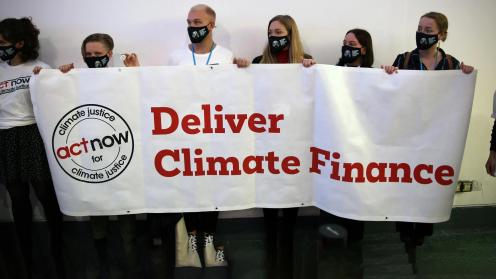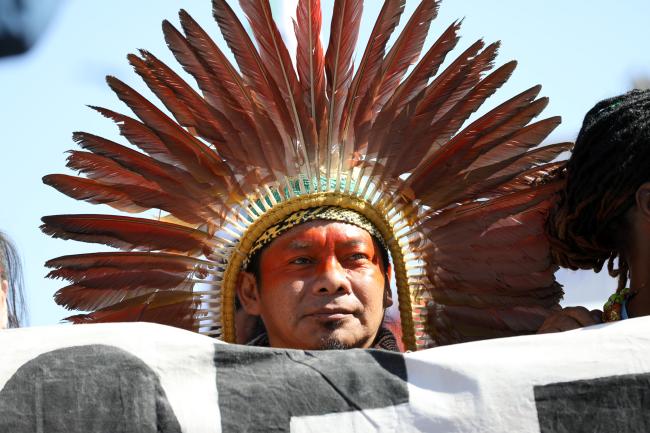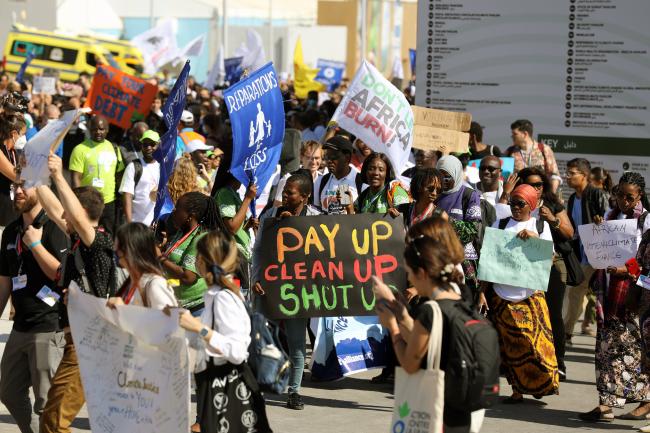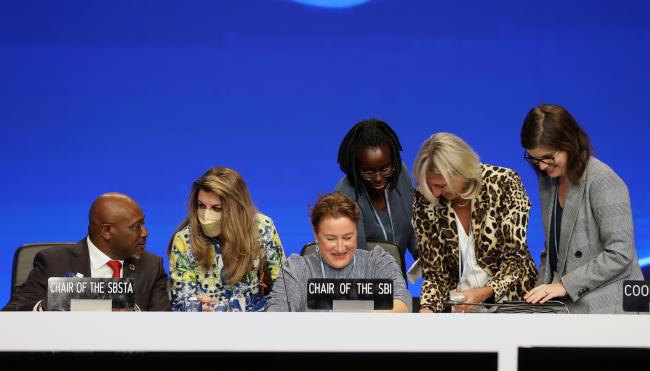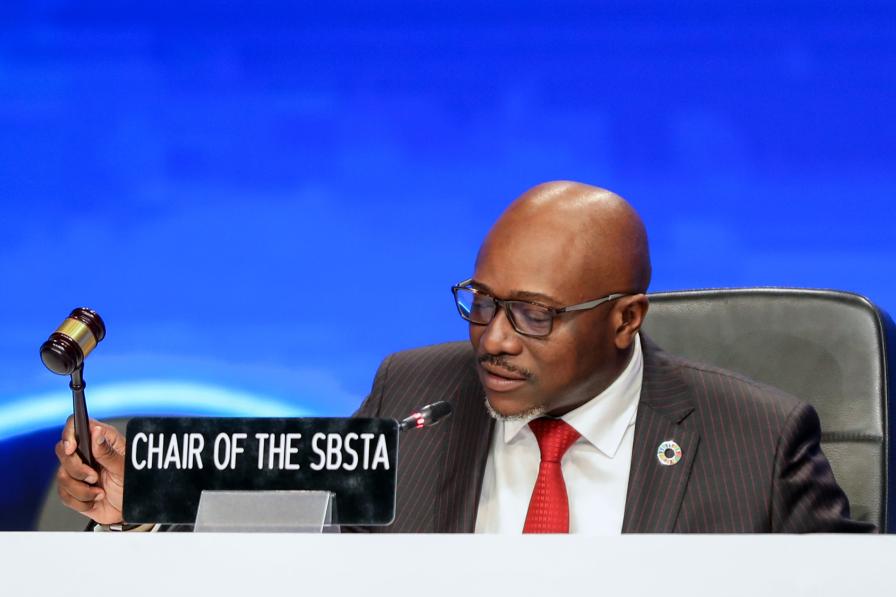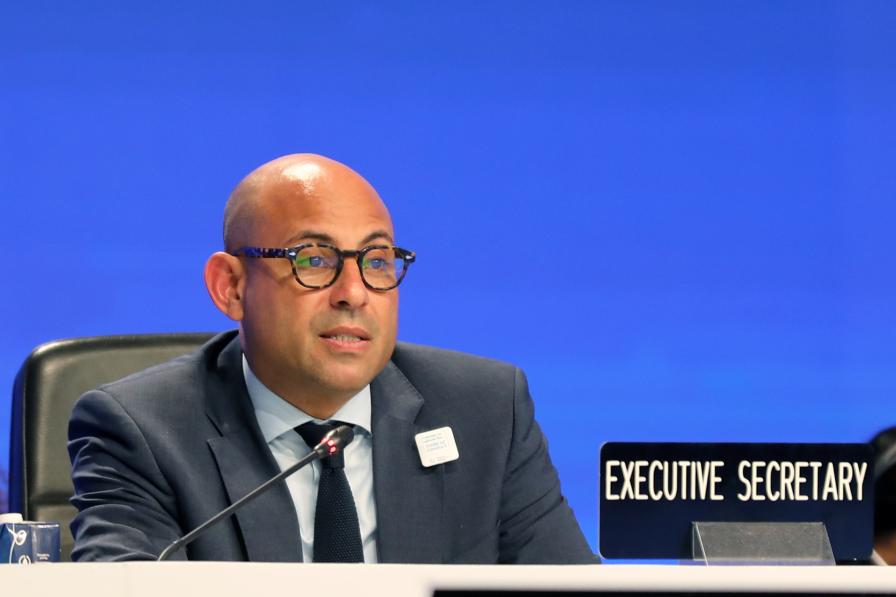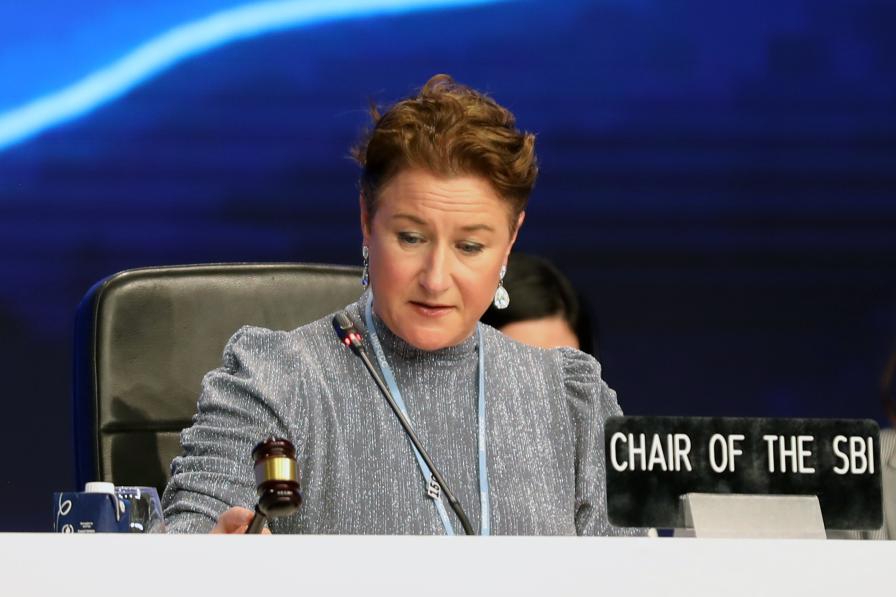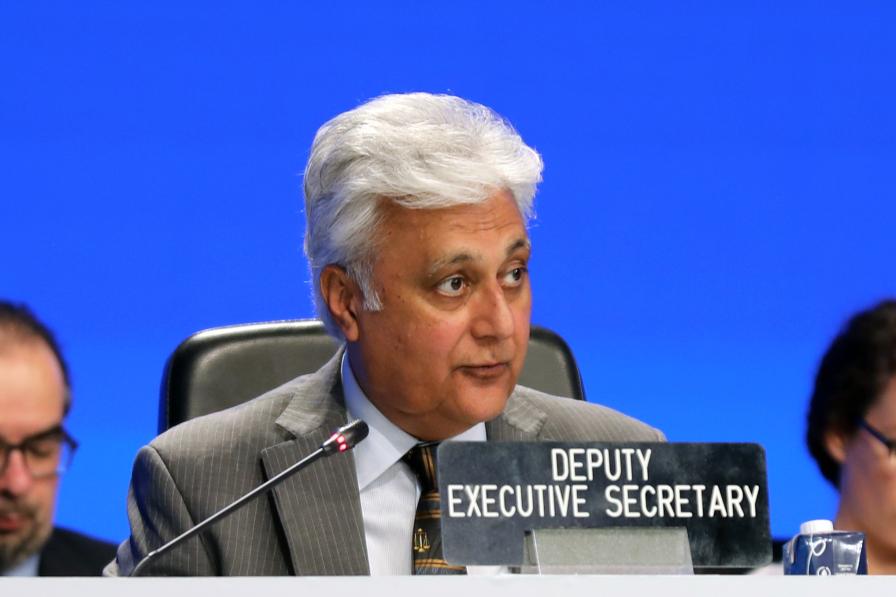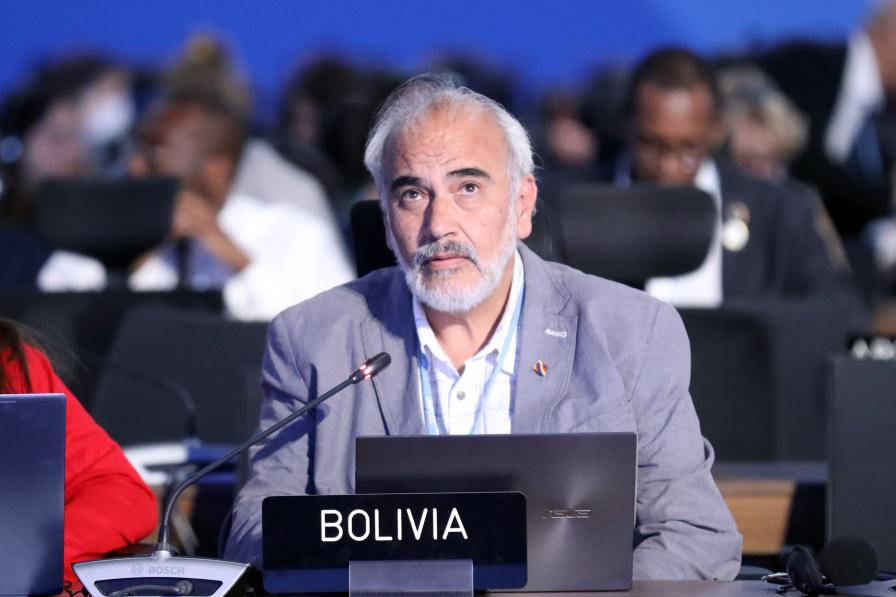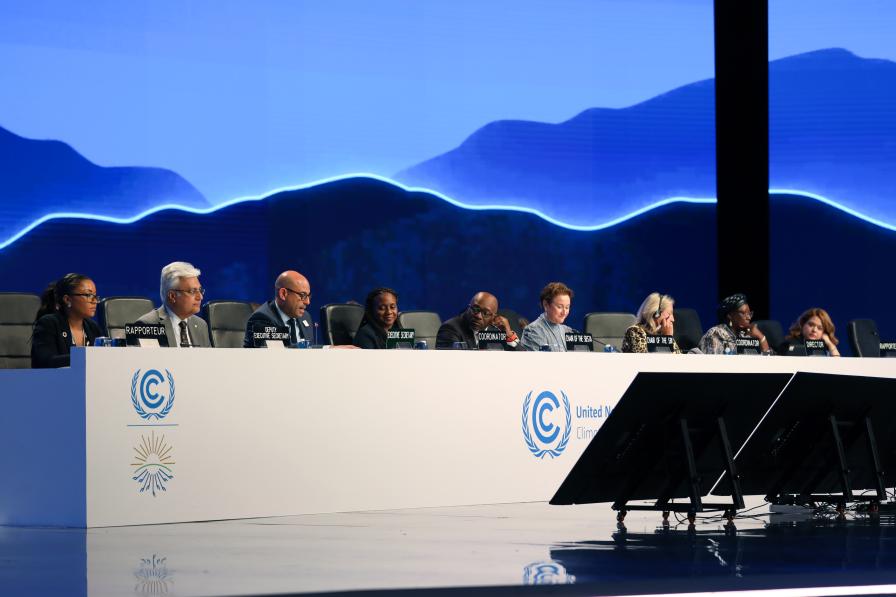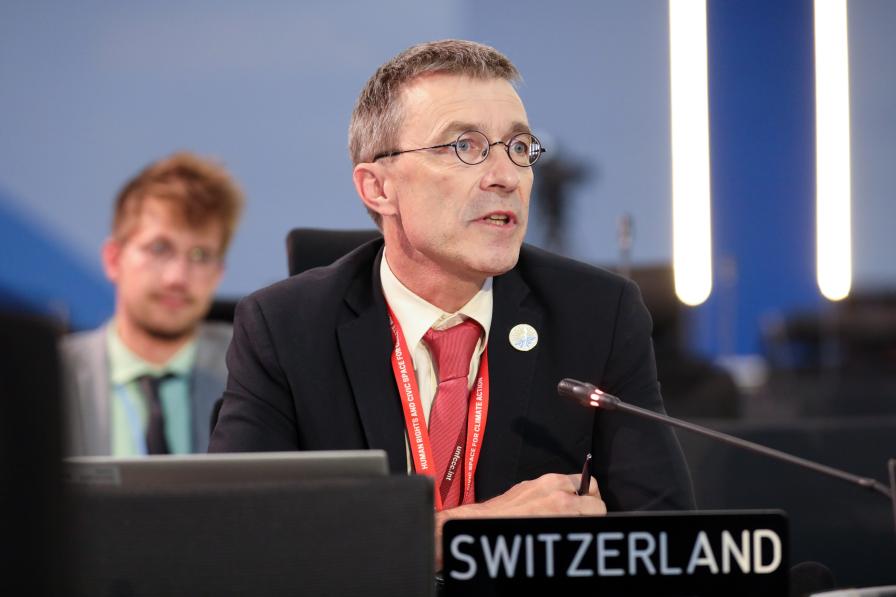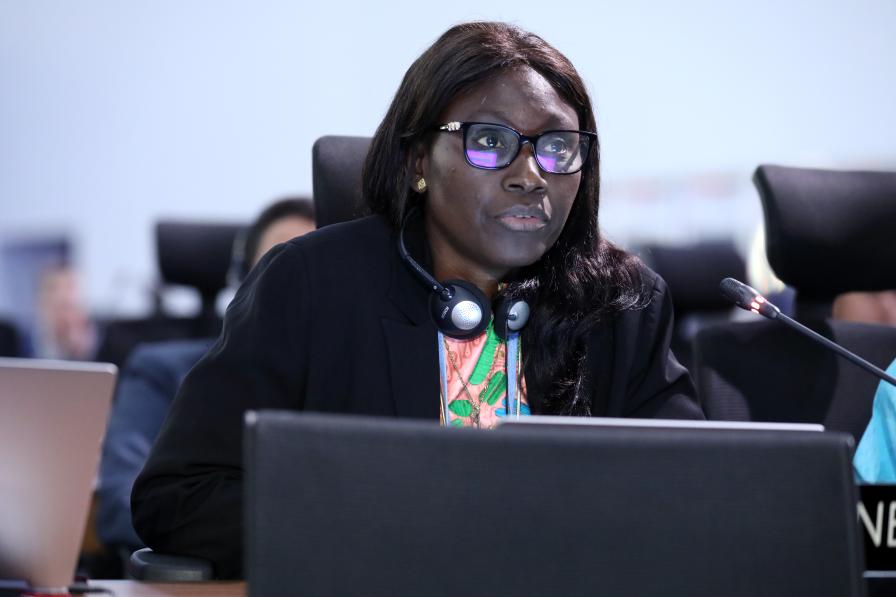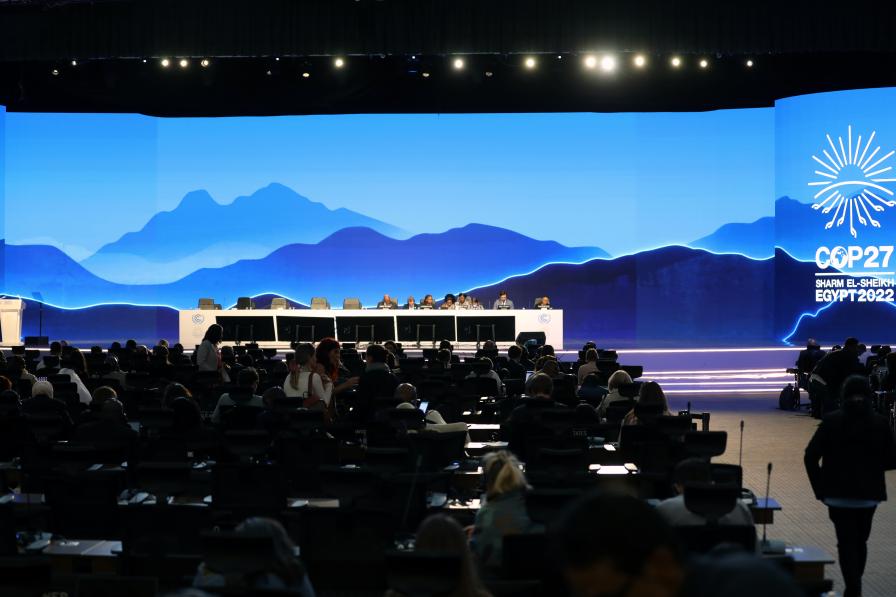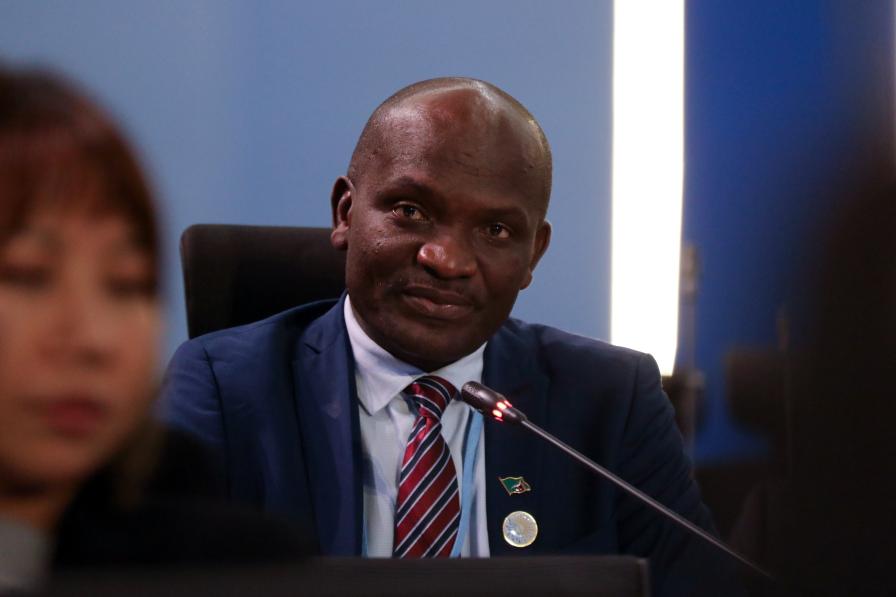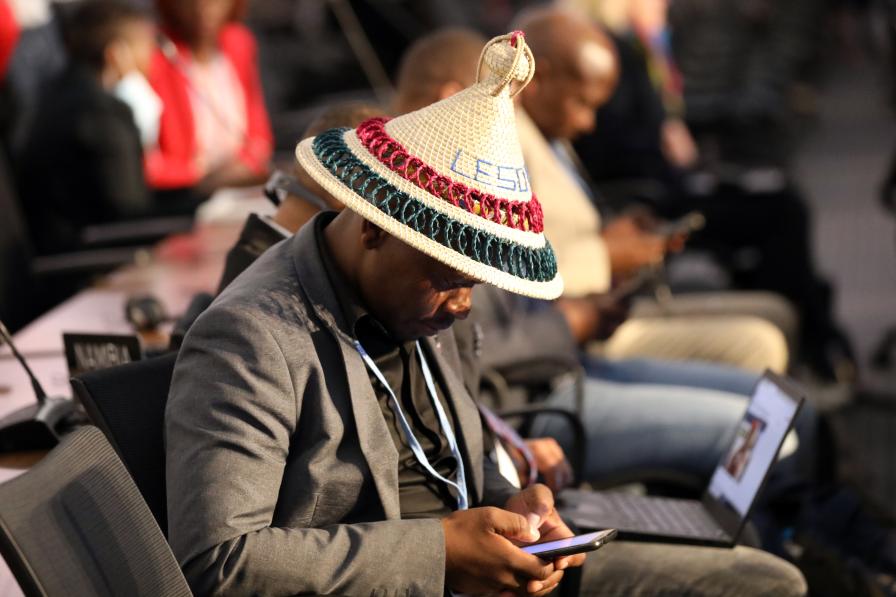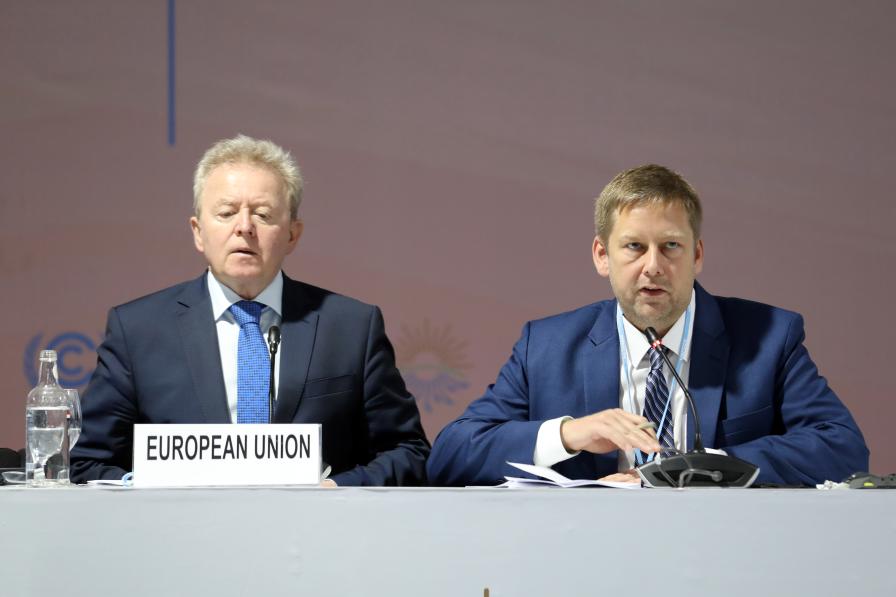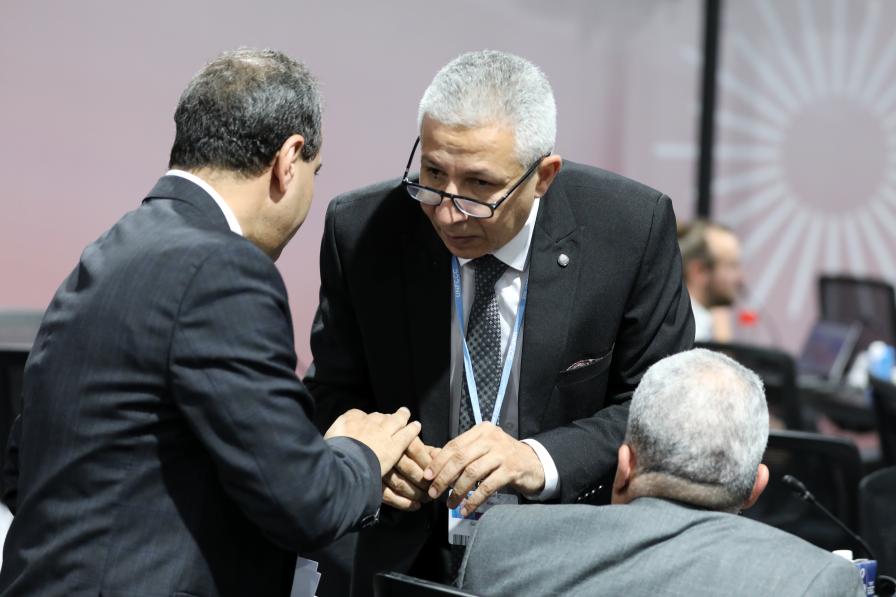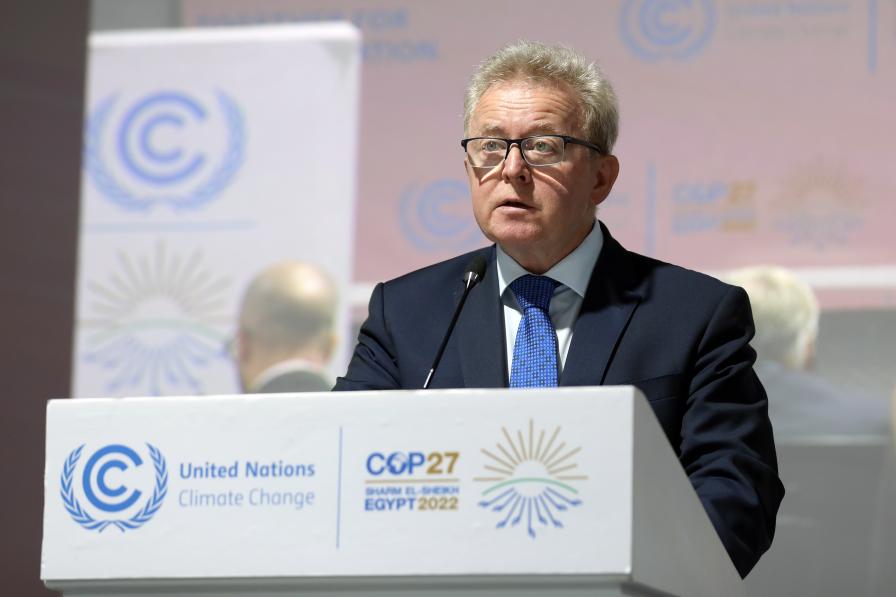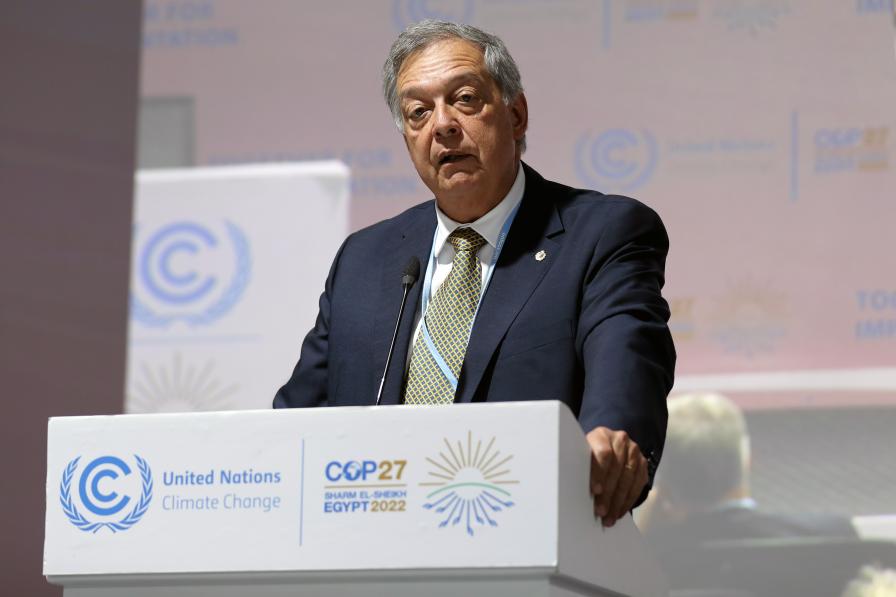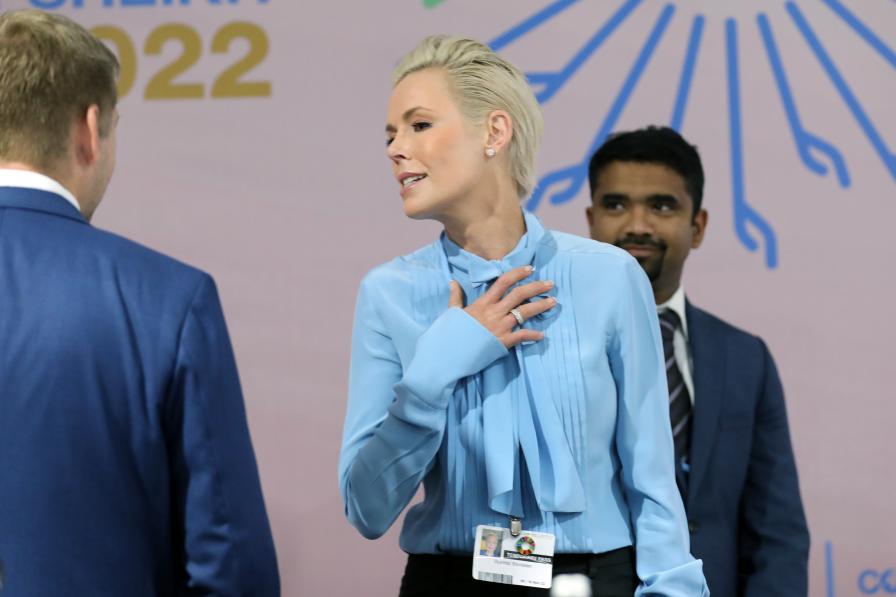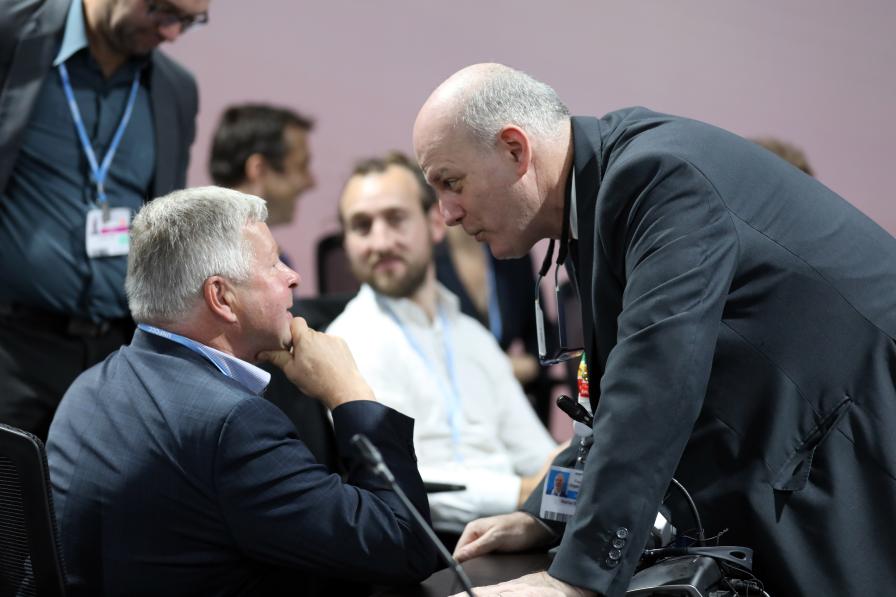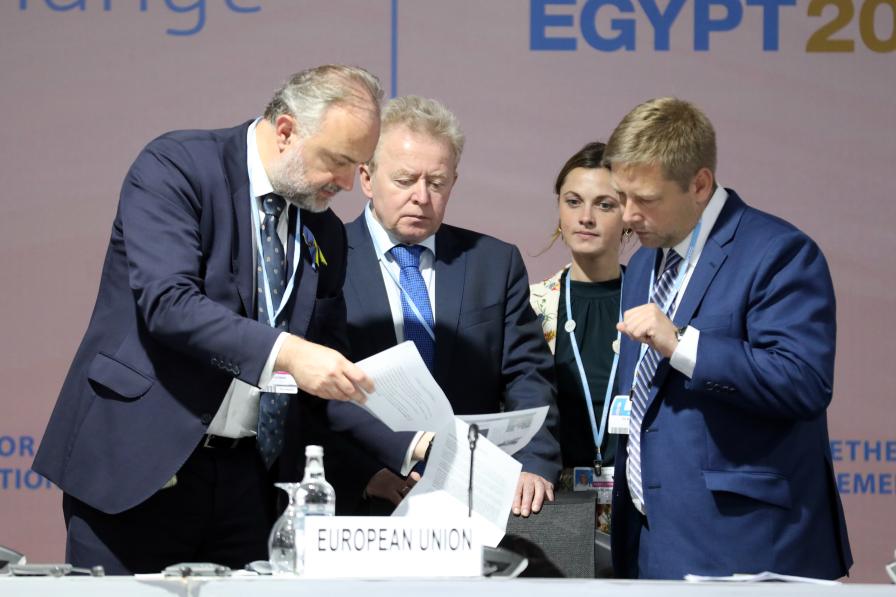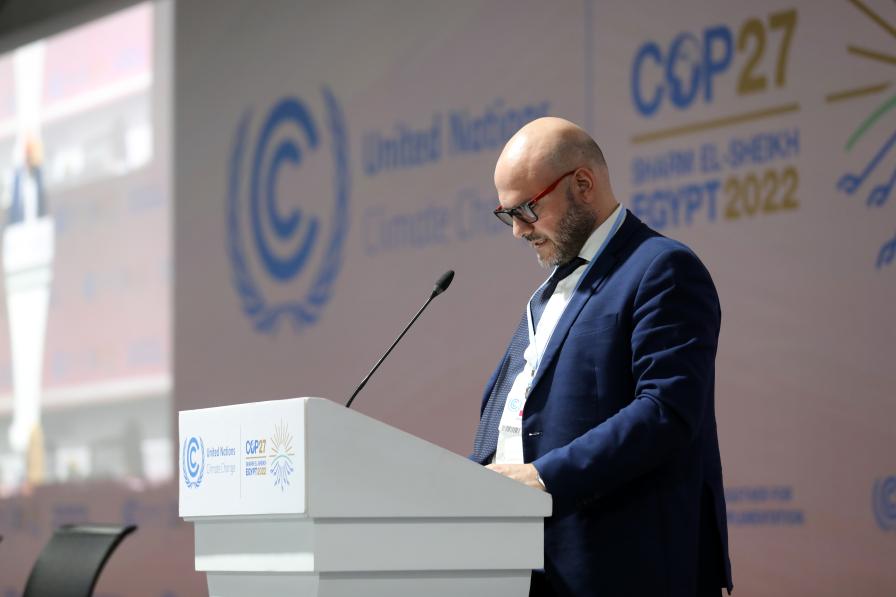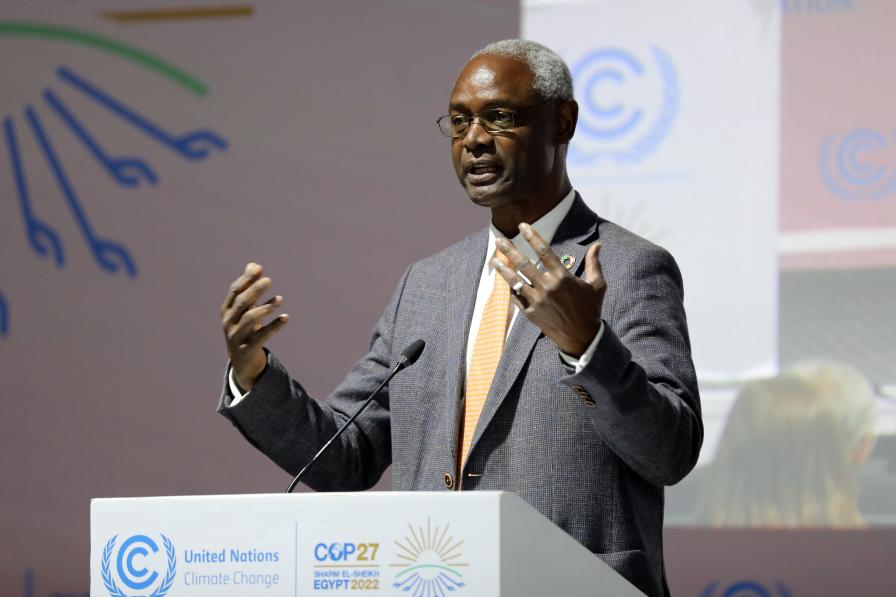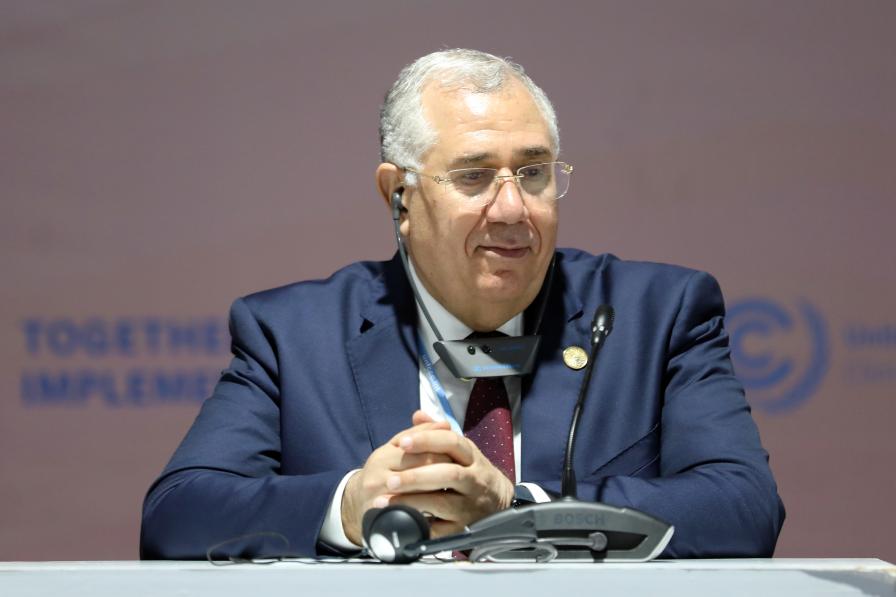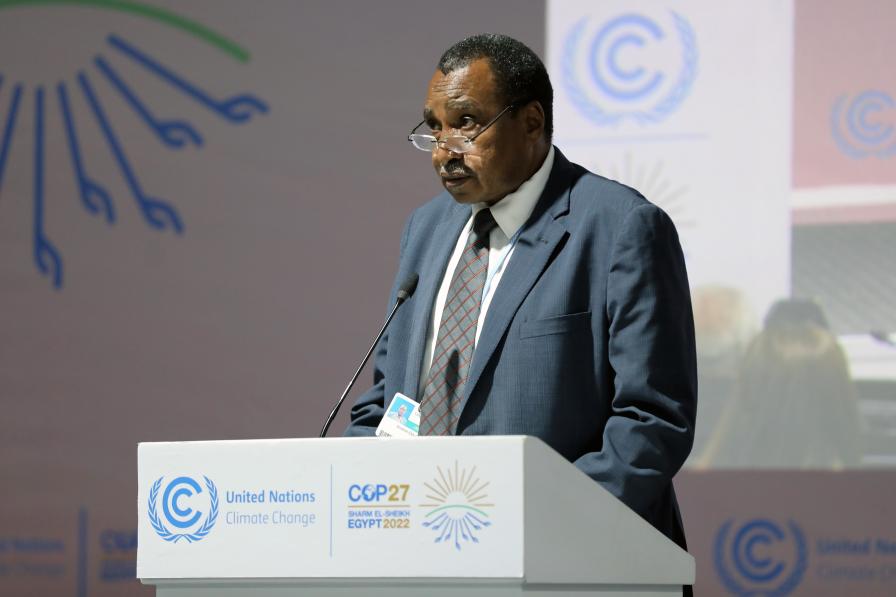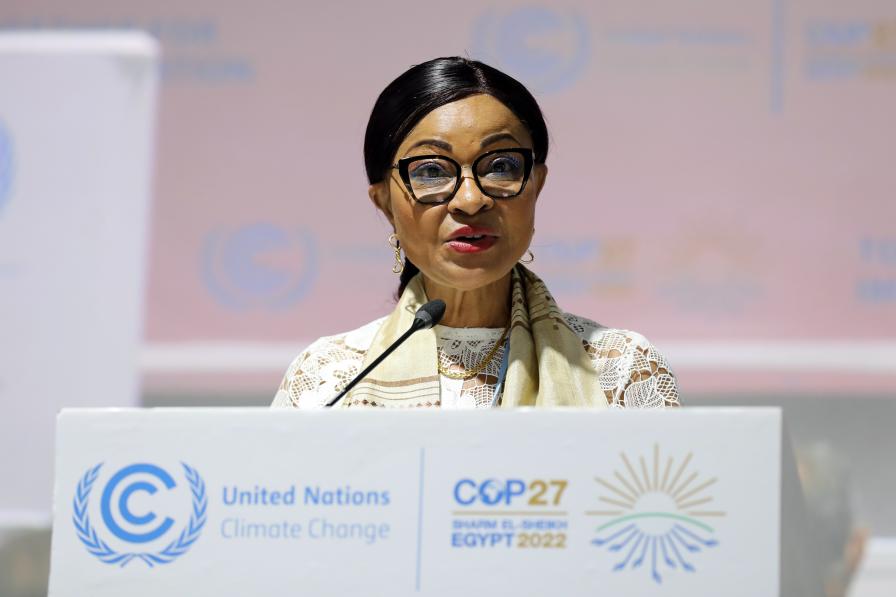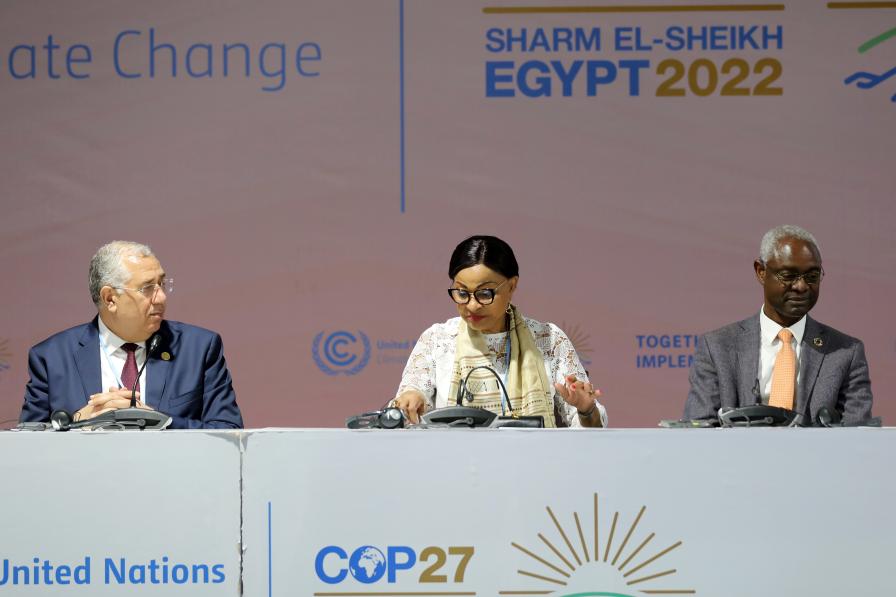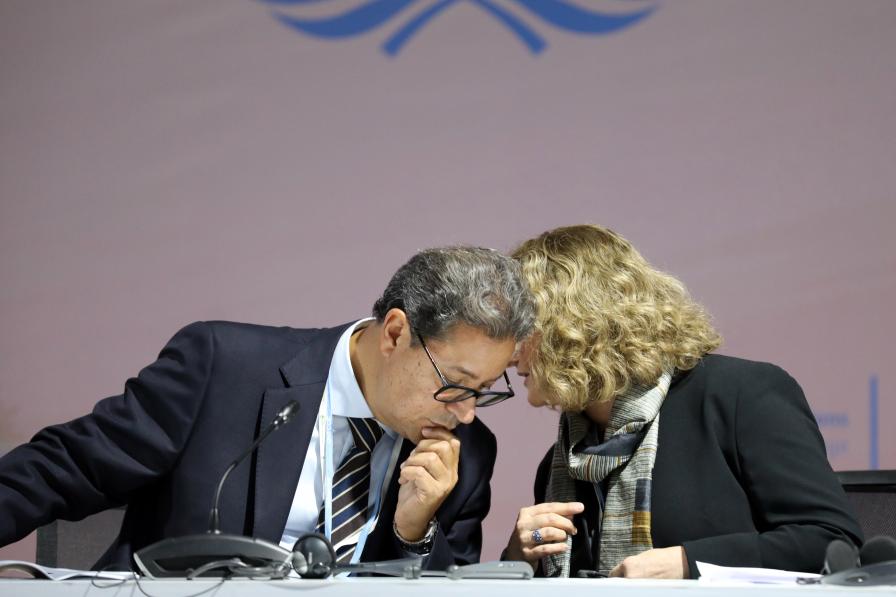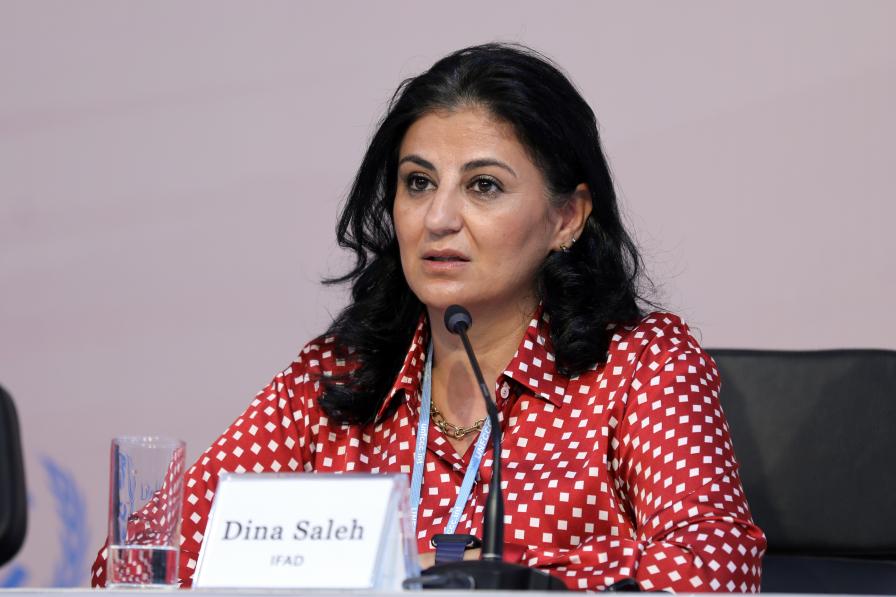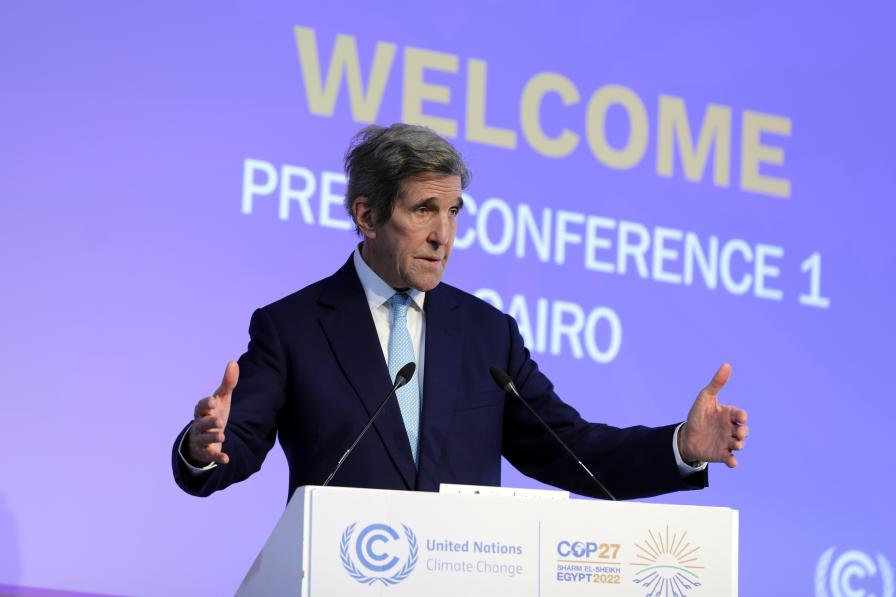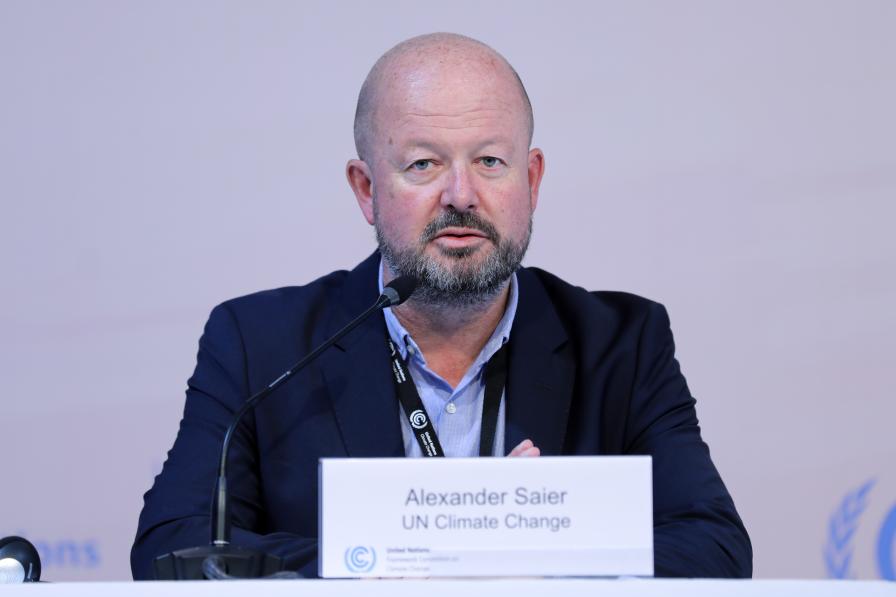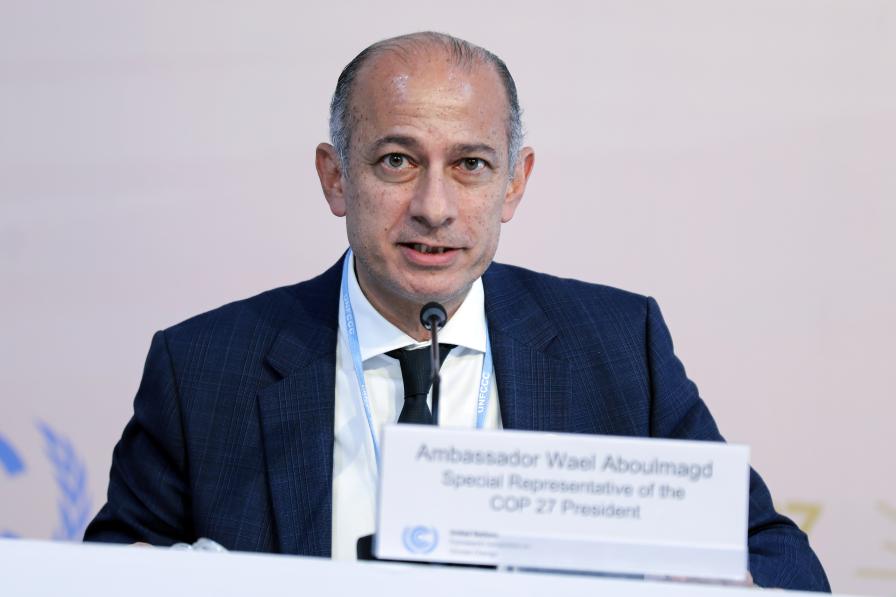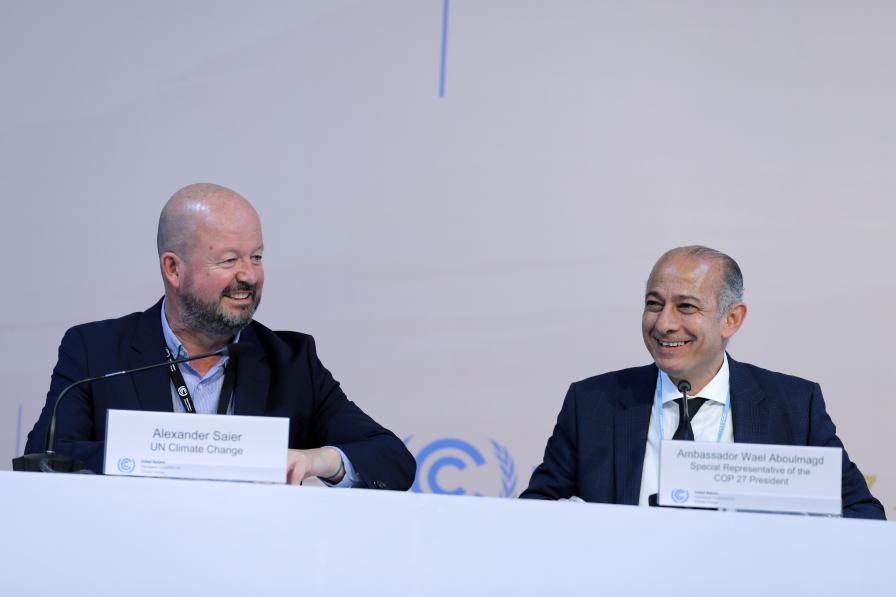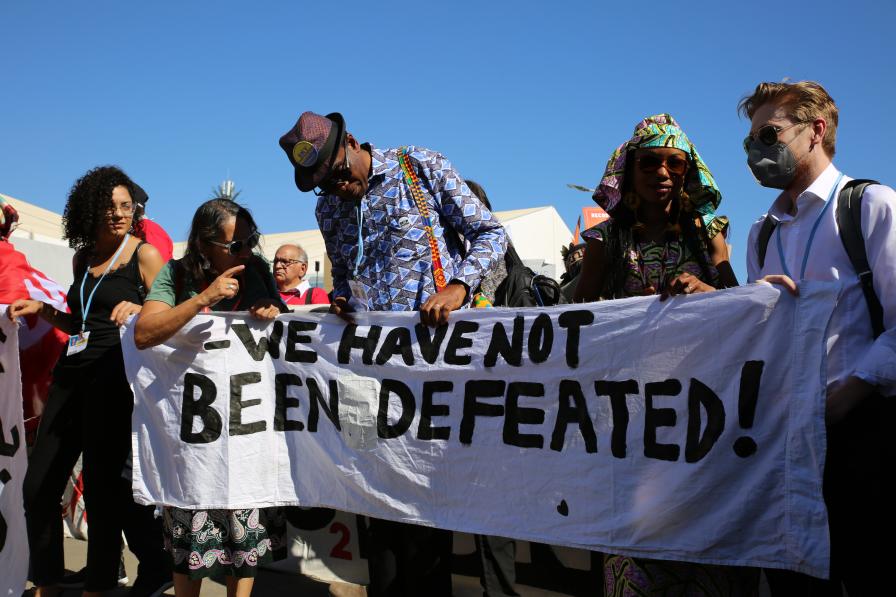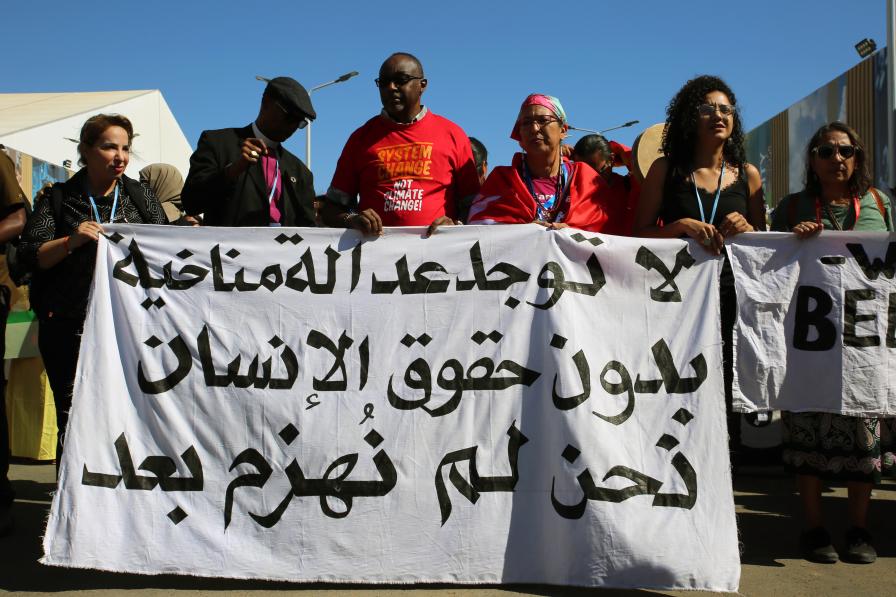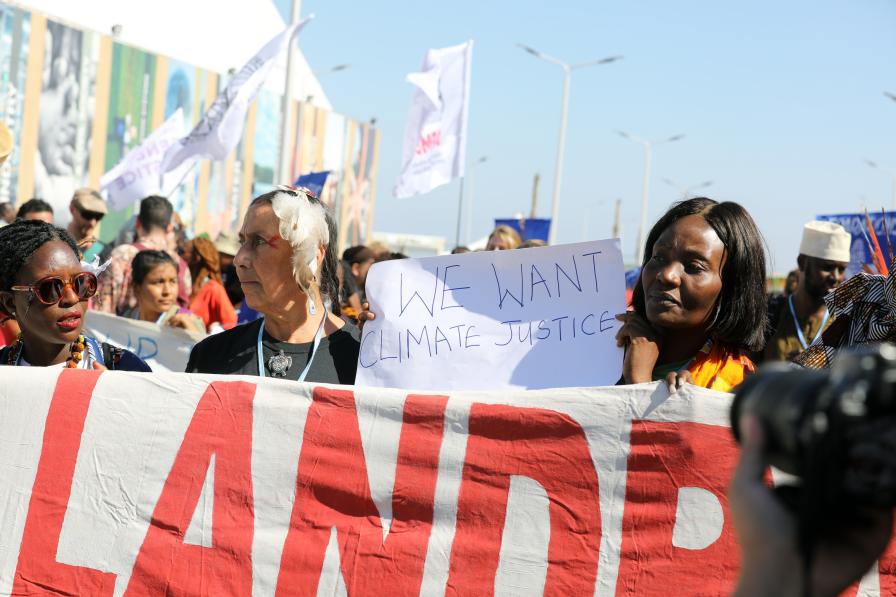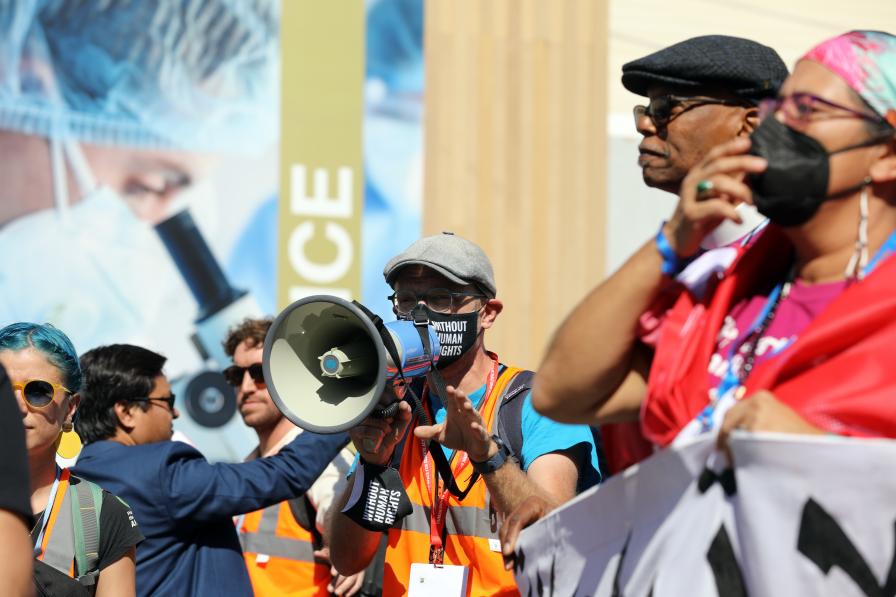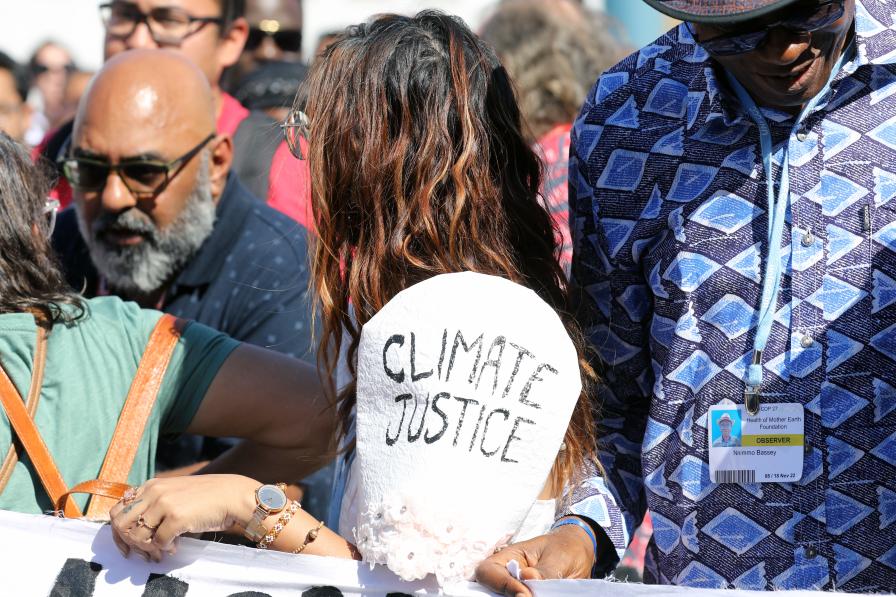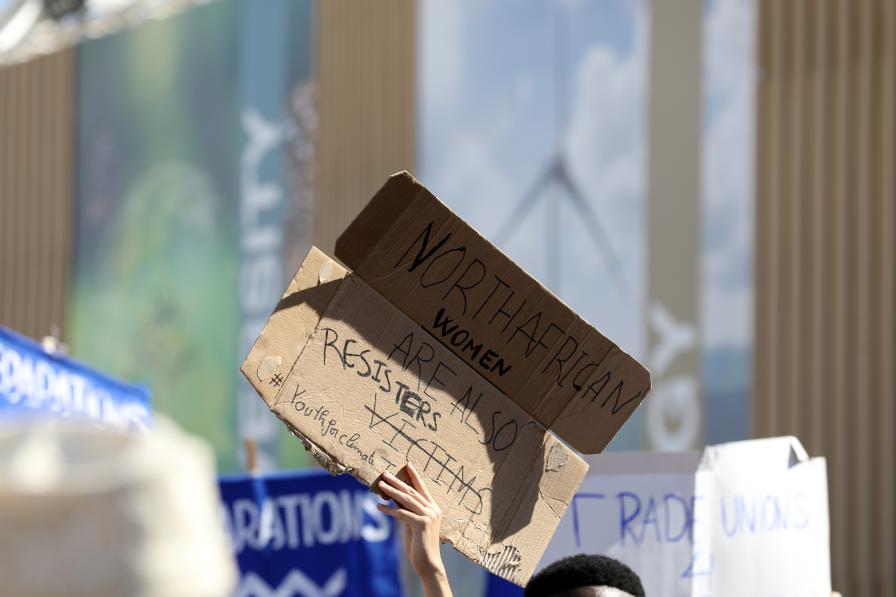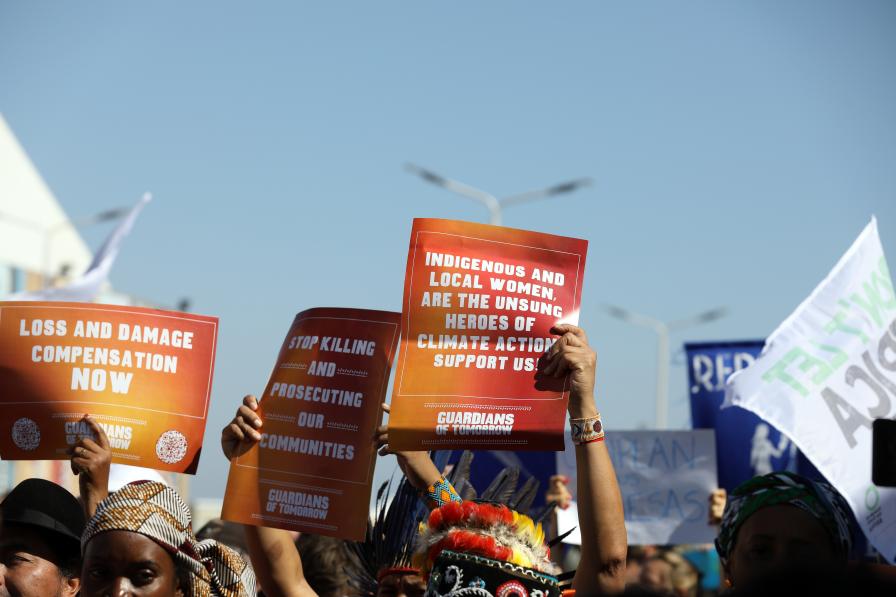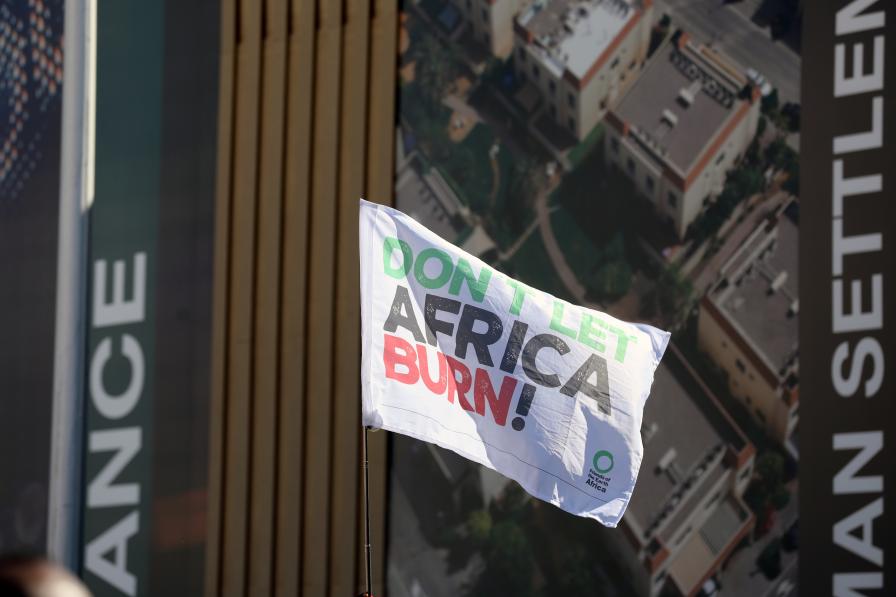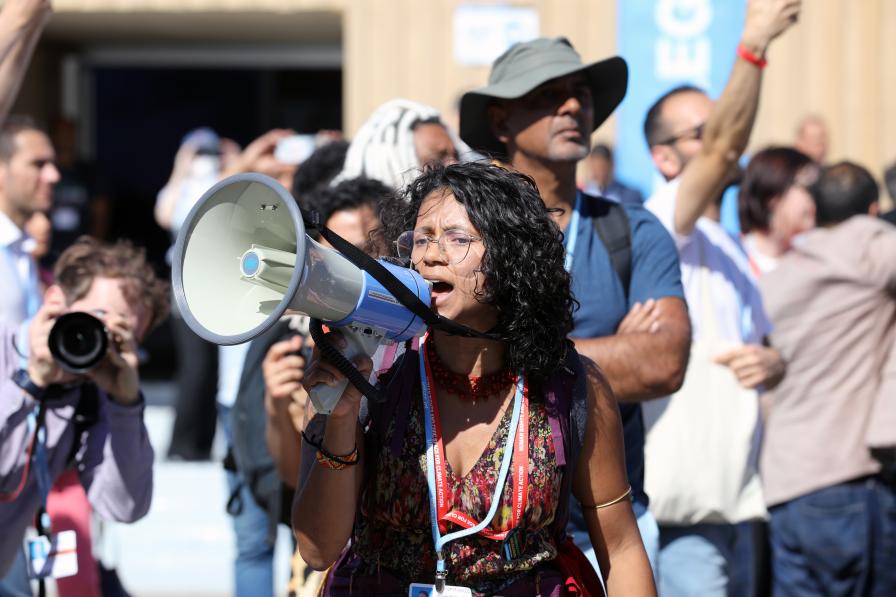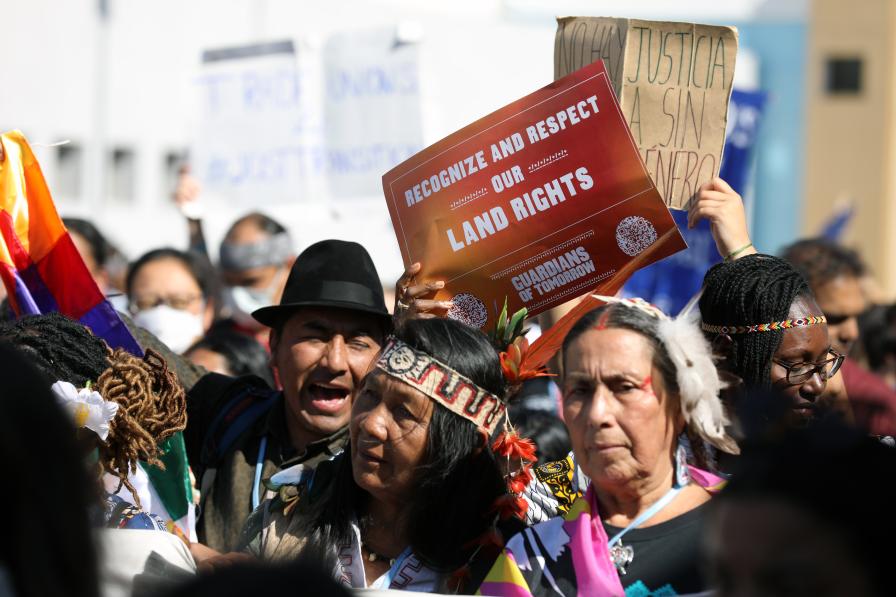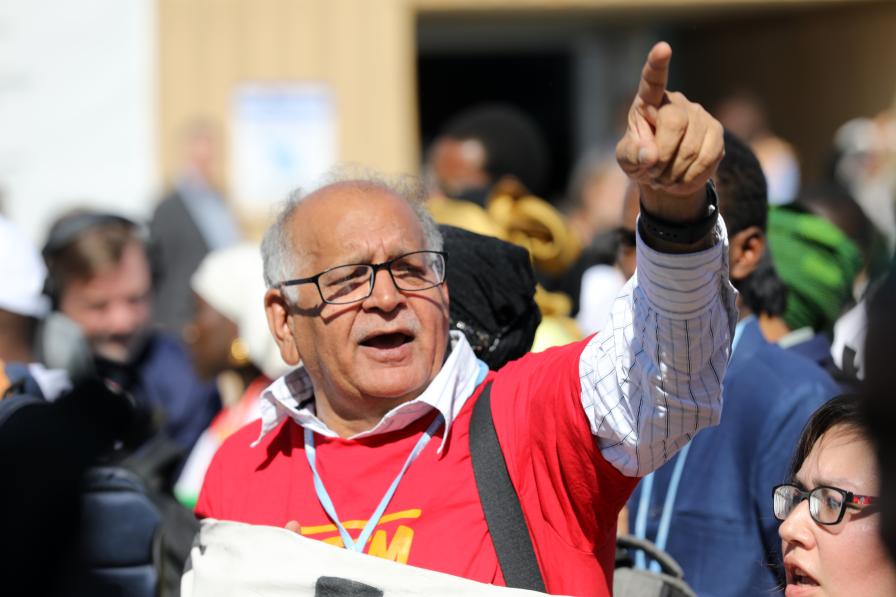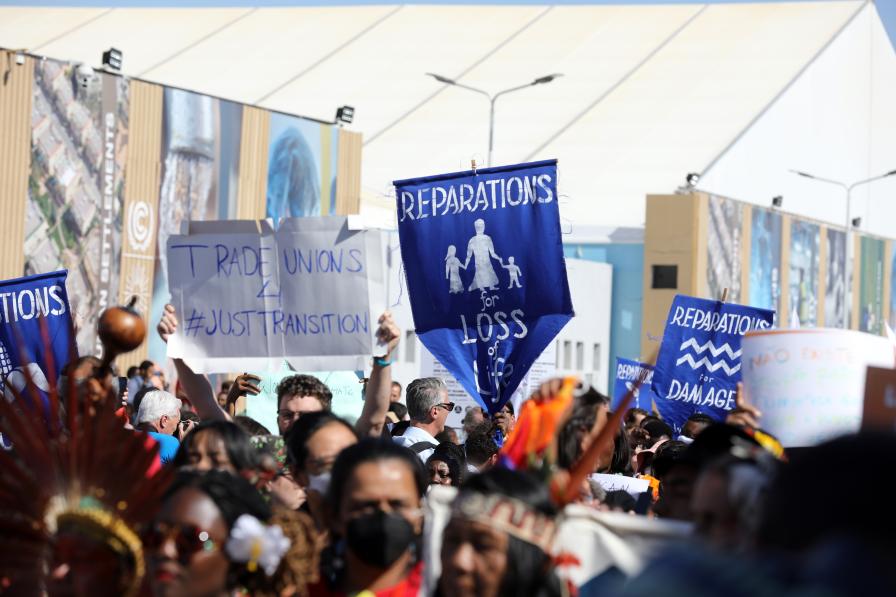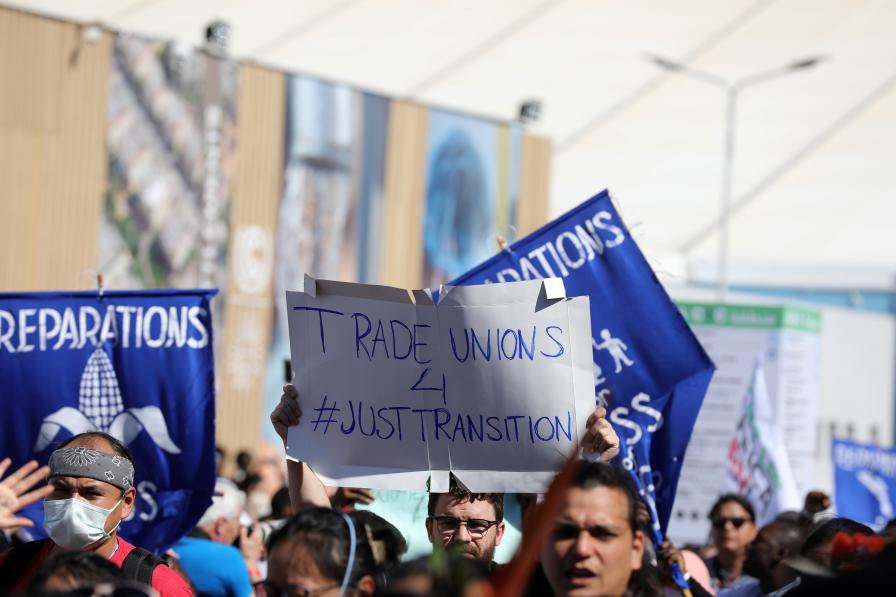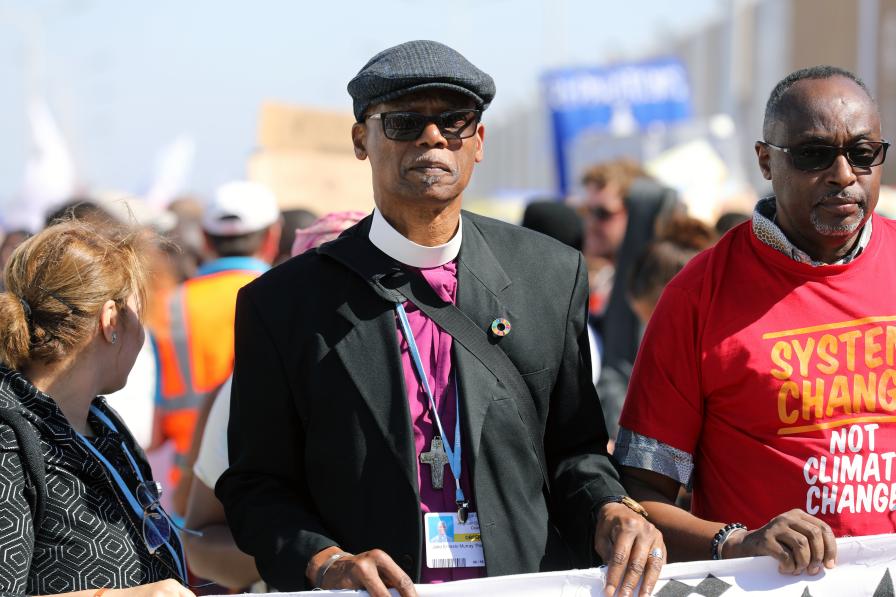The end of the first week at UN climate change conferences is always strange. For negotiators working on finance and other issues that fall under the governing bodies of the United Nations Framework Convention on Climate Change (UNFCCC), Kyoto Protocol, and Paris Agreement, it is a day like any other: spent in back-to-back informal consultations, exchanging views on their various agenda items, knowing they have another week to reach agreement.
For many others, however, the day marks a cutoff point: texts are supposed to be ready for the closing plenaries of the Subsidiary Body for Scientific and Technological Advice (SBSTA) and the Subsidiary Body for Implementation (SBI). The Sharm El-Sheikh Climate Change Conference was no exception, and in many negotiation rooms, delegates made last attempts at sorting out divergences. Civil society organizations held actions throughout the day to remind delegates of their responsibility, and a climate march proceeded through the UNFCCC Blue Zone.
Want to dive deeper? Read the full Earth Negotiations Bulletin daily report in English, Français, Español, 日本語.
The closing plenaries painted a rather bleak picture. Agreement was found on some issues, such as those related to the consideration of reports by constituted bodies and to reporting guidelines. In the bigger scheme of things, however, these are relatively minor issues.
As the Chairs of the Subsidiary Bodies went through their agenda items, the tally of issues on which no agreement could be found grew. These include the usual suspects, such as cooperative implementation under the Paris Agreement (Article 6). But also more surprising candidates, such as matters related to least developed countries or the discussions on national adaptation plans. Most of these items adopted procedural conclusions, with some forwarding heavily bracketed draft decision text based on parties’ discussions during the first week, for parties’ continued consideration during the second week of the conference. The Presidency is also expected to suggest a way forward for these issues.
In their closing statements, many expressed their disappointment at parties’ inability to reach conclusions on many items and urged enhanced cooperation in the second week.
To receive free coverage of global environmental events delivered to your inbox, subscribe to the ENB Update newsletter.
All ENB photos are free to use with attribution. For the Sharm El-Sheikh Climate Change Conference, please use: Photo by IISD/ENB | Mike Muzurakis
